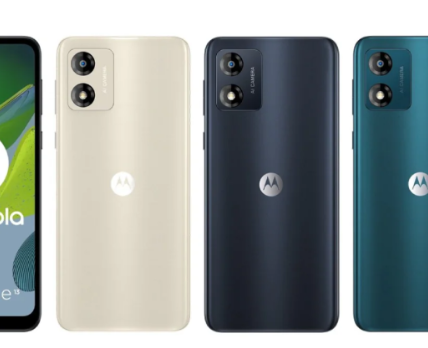Mobile trade for digital goods is all about buying and selling items that you can only use online. Digital goods include things like e-books, video games, music apps and even online lessons. These items are not physical; you can’t hold them in your hand but you can download and use them on your phone, tablet or computer. With mobile trade you can buy these goods directly from your smartphone making the whole process super easy and quick.
For example, imagine you want a new game. Instead of going to a shop you can just open an app store, pay online and start playing in minutes. This convenience is a big reason why mobile trade for digital goods has become so popular. People love the idea of having everything they need right at their fingertips.
Role of Mobile Platforms in Digital Trade
Mobile platforms play a huge role in making mobile trade for digital goods so successful. Platforms like Google Play, Apple App Store and Amazon provide a safe and easy place to buy and sell digital products. They bring together creators and buyers so everyone benefits. Creators can sell their products to people all around the world and buyers can get access to millions of options in just a few taps.
Another cool thing about mobile platforms is how they handle payments. They support different ways to pay like credit cards, mobile wallets or even gift cards. This makes it easy for people to purchase their favorite digital goods without any trouble. With so many options and features it’s no wonder that mobile platforms are the heart of the digital trade industry.
Market Trends Driving Mobile Trade for Digital Goods
The Surge of Subscriptions and Microtransactions
Mobile trade for digital goods has seen a massive boost because of subscriptions and microtransactions. Subscriptions let people pay a small amount each month to enjoy things like movies, music or even games. Popular services like Netflix, Spotify and Apple Arcade are great examples of this trend. Instead of buying one big item people pay small amounts regularly to enjoy unlimited access to what they love.
Microtransactions are also driving this market. In gaming apps for example users can pay a little extra to unlock special characters or buy in-game items. These tiny purchases may not seem like much but they add up and make a big impact on mobile trade for digital goods. Both subscriptions and microtransactions show how the market is shifting toward flexible and affordable options.
Influence of AI and Personalization
Artificial Intelligence (AI) has made mobile trade for digital goods even more exciting. AI tools can figure out what users like by studying their habits. For example if someone listens to a lot of pop music the app might suggest new pop songs for them. This personalization makes users feel special like the app really understands them.
Thanks to AI mobile platforms are getting better at showing users the digital goods they want most. This helps users save time and makes shopping more fun. AI isn’t just smart; it also helps businesses sell more by connecting the right products with the right people. This trend has turned mobile trade into a super-efficient and personalized experience.
Benefits of Mobile Trade for Consumers and Businesses
Convenience and Accessibility
One of the biggest benefits of mobile trade for digital goods is how convenient it is. Imagine needing a book for your homework late at night. With mobile trade you can download an ebook instantly without leaving your home. This convenience makes life easier for everyone, especially for busy people who don’t have time to visit physical stores.
Accessibility is another big advantage. You can buy digital goods anytime anywhere as long as you have your smartphone and an internet connection. It doesn’t matter if you’re in a big city or a small village. Mobile trade for digital goods connects people to the things they need no matter where they are.
Broader Market Reach for Businesses
For businesses mobile trade for digital goods opens up a whole new world of opportunities. Since these goods are digital, companies don’t have to worry about shipping or storing physical products. This makes it easy for them to reach customers in different countries. For example a small business can sell its ebooks to people all over the world with just a few clicks.
Another benefit for businesses is how they can grow quickly with mobile trade. They don’t need a big store or a lot of money to start selling digital goods. With a good idea and a mobile platform even small creators can find success. This makes mobile trade a game-changer for businesses of all sizes.
Challenges in Mobile Trade for Digital Goods
Security Concerns and Fraud Prevention
While mobile trade for digital goods is amazing it also has challenges like security concerns. Since everything happens online hackers sometimes try to steal people’s money or personal information. This makes some users nervous about buying digital goods through their phones.
To solve this problem mobile platforms use tools like encryption and two-factor authentication. These tools make transactions safer but businesses must always stay one step ahead of cybercriminals. Educating users about safe online shopping habits is another way to prevent fraud and make mobile trade for digital goods more secure.
Managing Intellectual Property
Another big challenge is managing intellectual property. Digital goods like music and e-books can be copied and shared without permission which hurts creators. For example if someone shares a paid app for free the creator loses money. This makes it hard for businesses to protect their work.
Mobile platforms are working to stop piracy by using digital rights management (DRM) technology. DRM ensures that only paying customers can use digital goods. Creators and companies must also educate users about why it’s important to respect intellectual property. This will help make the mobile trade market fairer for everyone.
Technological Innovations Shaping the Future
Mobile Payment Gateways and Blockchain
Technology plays a huge role in shaping the future of mobile trade for digital goods. Mobile payment gateways like Google Pay, Apple Pay and PayPal make it easy and safe to pay for digital goods. These gateways allow users to complete purchases quickly, encouraging more people to buy online.
Blockchain is another exciting innovation. It’s like a digital ledger that records transactions securely. With blockchain businesses can prevent fraud and keep track of digital goods more easily. This technology could make mobile trade for digital goods safer and more reliable in the future.
Augmented Reality (AR) and Virtual Reality (VR) in Digital Goods
AR and VR are also changing how we experience digital goods. Imagine using AR to try out a virtual painting on your wall before buying it. Or using VR to attend a live concert from the comfort of your home. These technologies are making mobile trade for digital goods more interactive and fun.
As AR and VR become more popular we’ll see even more creative ways to buy and enjoy digital goods. These innovations make the mobile trade experience exciting and open up endless possibilities for businesses and consumers.
Impact on Traditional Retail Models
The Decline of Physical Media
Mobile trade for digital goods has changed how we buy things like music and books. Physical media like CDs and DVDs are becoming less popular because people prefer to download or stream content. Why buy a CD when you can listen to all your favorite songs on your phone?
This shift is great for convenience but it’s challenging for traditional stores that sell physical goods. Many have had to close or change their business models. While it’s sad for some this change shows how powerful and efficient mobile trade for digital goods has become.
Transformations in Consumer Behavior
Mobile trade for digital goods has also changed how people shop. Instead of going to stores many prefer buying from their phones. This trend is especially popular among young people who are used to doing everything online.
As a result businesses must adapt to this new behavior. They need to focus on creating user-friendly apps and websites to keep their customers happy. Those who embrace mobile trade will thrive while others might struggle to keep up.
Regulations and Ethical Considerations
Privacy and Data Protection Laws
Mobile trade for digital goods comes with the responsibility of protecting user data. Since customers share personal information like credit card details platforms must follow strict privacy laws. Regulations like the General Data Protection Regulation (GDPR) help ensure that user data is handled safely.
Businesses must also be transparent about how they use customer data. Clear privacy policies and secure systems build trust which is essential for the success of mobile trade for digital goods.
Transparency in Transactions
Ethical practices are key to maintaining trust in mobile trade for digital goods. Users should know exactly what they’re paying for and whether there are hidden charges. Clear terms and conditions help customers make informed decisions.
Businesses that prioritize honesty and fairness will build stronger relationships with their customers. This is crucial in a market where trust plays a major role in success.
Conclusion
Mobile trade for digital goods has transformed the way we buy and use digital products. From games and music to e-books and apps everything is just a click away. This convenience and accessibility make it a favorite for both consumers and businesses.
While challenges like security and piracy exist, innovations like blockchain and AI are solving these problems. As mobile technology continues to grow, the future of mobile trade for digital goods looks bright. It’s an exciting time for everyone involved in this digital revolution!




